Our History
Pathways to Progress: From 1969 to Present
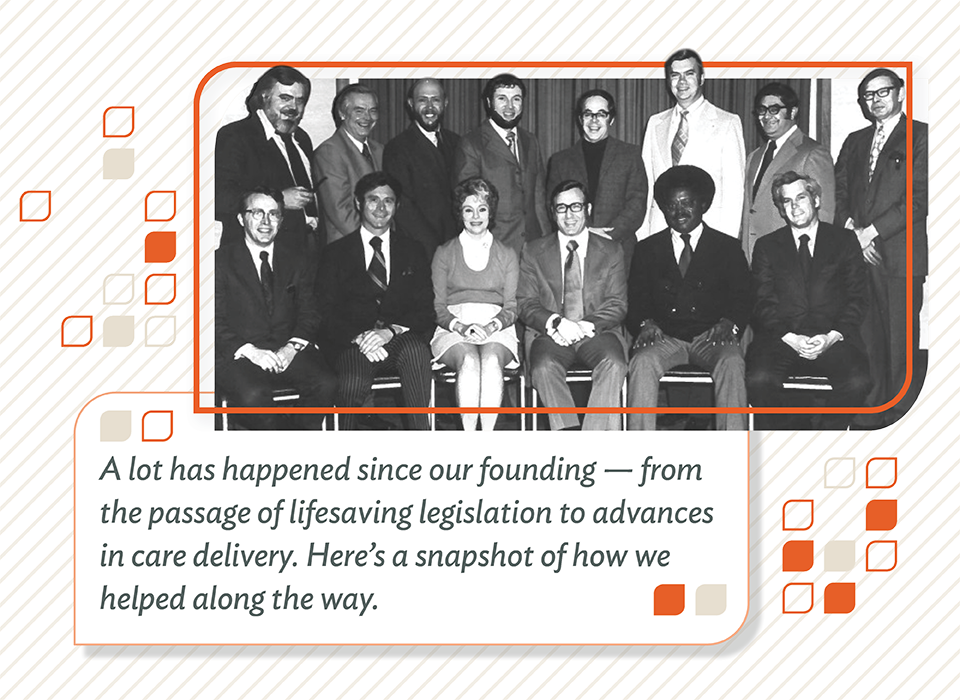
On Oct. 25, 1969, six years after the Community Mental Health Act, 19 directors of community mental health centers (CMHCs) gathered in Denver to create a unified voice for advocating on pending legislation, build a communications network and explore the creation of a formal organization. After this historic meeting, a memorandum was shared with approximately 300 CMHCs nationwide, paving the way for the National Council and a new era in behavioral health care.
Since then, the National Council has grown into a leading force in advancing mental health and substance use care, working tirelessly to expand access, improve quality and reduce barriers for millions of Americans. Through our advocacy and initiatives in policy, workforce development and system reform, we have driven lasting change and fostered a deeper understanding of mental health issues.
As we reflect on our history, we remain committed to the work that lies ahead. Our dedication to our members and the communities they serve is unwavering, and our vision for the future has never been clearer. We are dedicated to ensuring that mental wellbeing — including recovery from substance use — is a reality for everyone, everywhere. It’s who we are. It’s what we do.
Important Events in National Council History
1970s: Building the Foundation for a Brighter Future
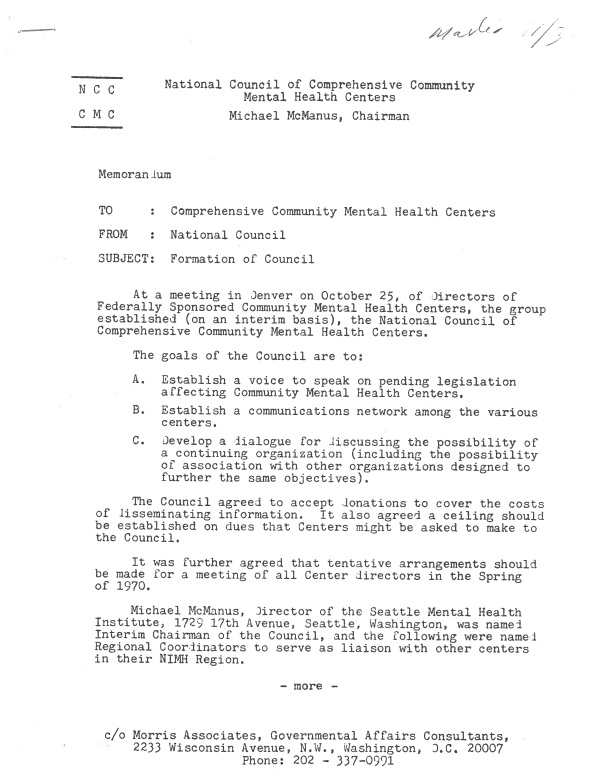
After a historic meeting of our founding members, a memorandum was shared with Community Mental Health Centers (CMHCs) announcing the launch of the National Council.
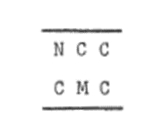
This is the first official logo of the National Council of Community Mental Health Centers, which would go on to become the National Council for Mental Wellbeing.
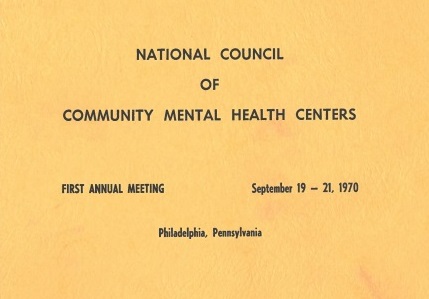
The first major meeting of federally funded CMHCs ― and our inaugural annual meeting as an organization — took place in Philadelphia, laying the foundation for NatCon.



[Click above images for larger versions with captions.]
- 1970: The National Council of Community Mental Health Centers is established as a formal organization with the original 96 CMHCs serving as founding members.
- The first major meeting of federally funded CMHCs — and our first annual meeting as an organization — occurs in Philadelphia, paving the way for NatCon.
- 1973: After President Nixon’s budget cuts resulted in the withholding of funds allocated by Congress for various mental health programs, the National Council brings about judicial action that forces the release of the impounded funds.
- 1974: The first edition of our flagship publication, Journal of Mental Health Administration (now The Journal of Behavioral Health Services & Research), is printed.
- 1977: Membership in the organization reaches 500.
1980s: Making Our Presence Felt Through Advocacy
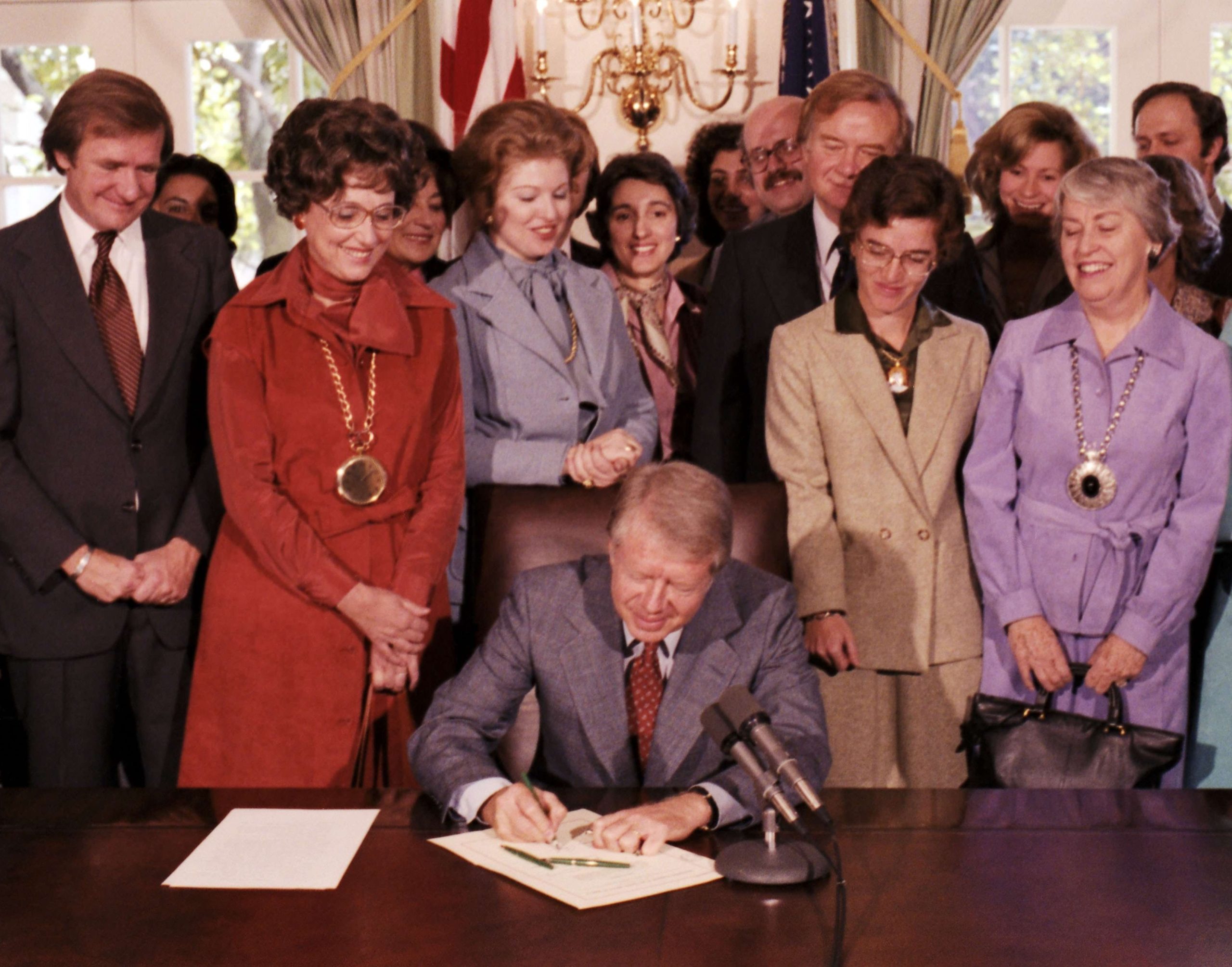
Thanks to our advocacy, the Mental Health Systems Act was signed into law on October 7, 1980, marking a significant victory for mental health reform.
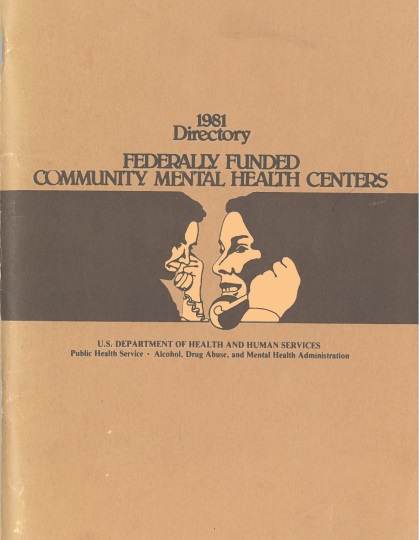
The first edition of our CMHC registry ― a valuable directory — is distributed to organizations across the field, further strengthening community ties.
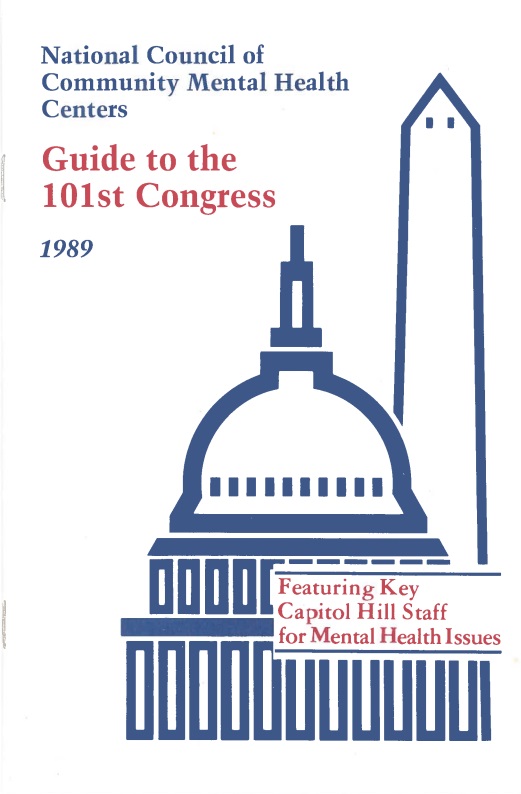
Our work on Capitol Hill plays a crucial role in the passage of the Emergency Medical Treatment and Labor Act. This pamphlet was a key tool in those efforts.



[Click above images for larger versions with captions.]
- 1980: Our advocacy leads to the development and passage of the Mental Health Systems Act, aimed at reforming mental health services and supporting community-based care.
- 1985: The inaugural edition of our National Registry of Community Mental Health Services is published and distributed, with 1,500 providers listed for reference.
- 1986: Our advocacy contributes to the passage of the Emergency Medical Treatment and Labor Act, which improved access to emergency care for individuals with mental health issues.
- 1989: We begin offering consulting services — now a staple of the organization — to community behavioral health care providers, authorities and state governments.
1990s: Championing Mental Wellbeing in Communities
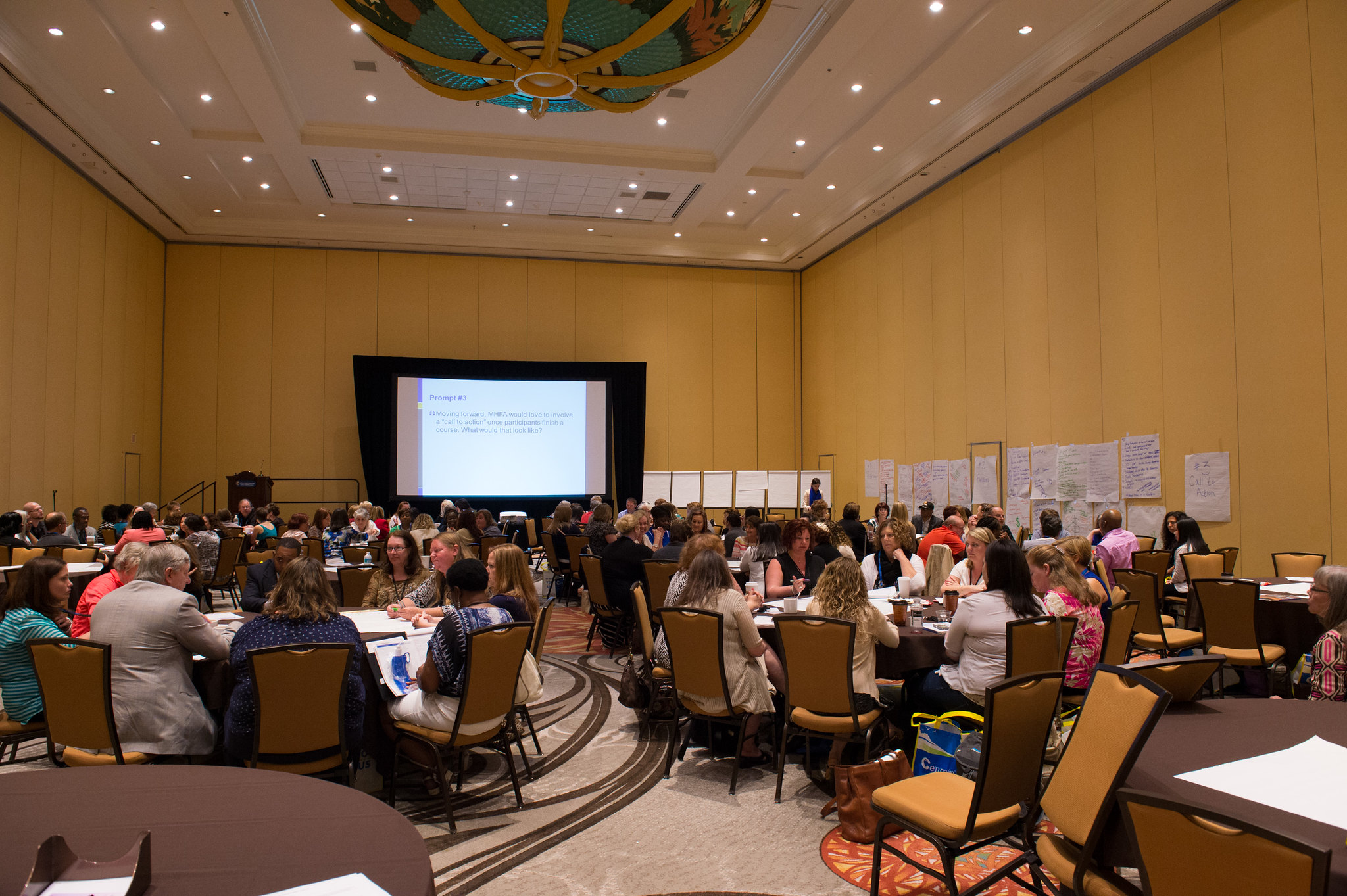
In 1998, we launched the Middle Management Academy, a leadership development program designed to strengthen and empower the workforce.
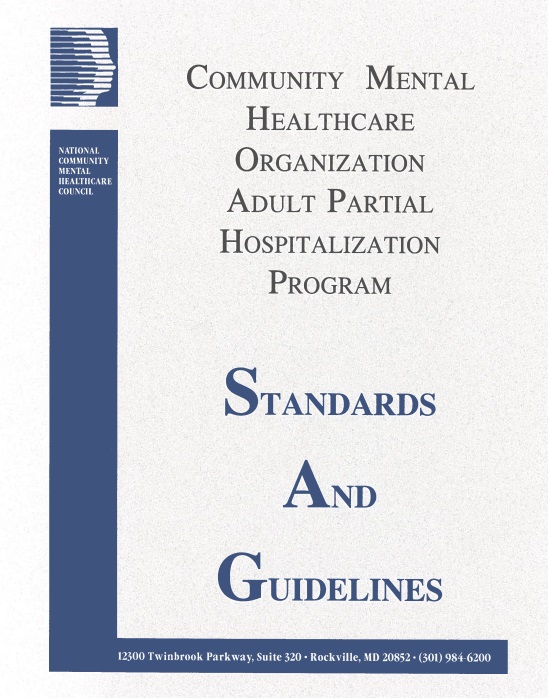
This is an example of the resources we provided to support the movement toward more community-based and accessible mental health services.
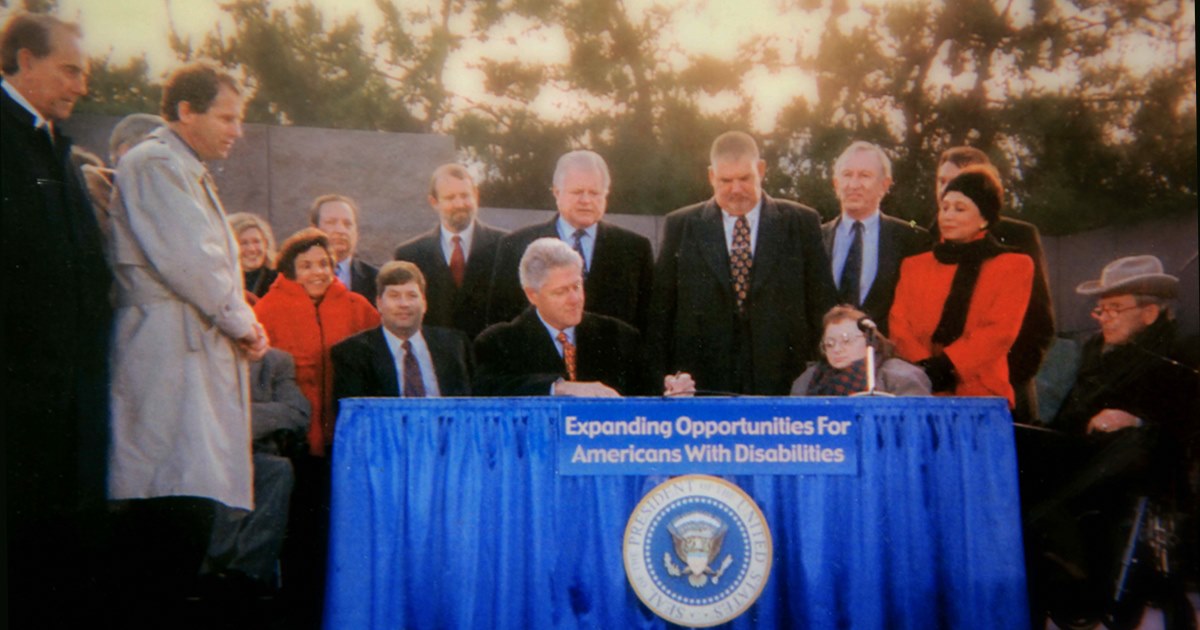
Our advocacy led to the passage of the Ticket to Work and Work Incentives Improvement Act, which was signed into law on December 17, 1999.



[Click above images for larger versions with captions.]
- 1993: The National Council of Community Mental Health Centers is renamed National Community Mental Healthcare Council to emphasize the word “community” as the primary focus for providing a continuum of care.
- 1997: The National Community Mental Healthcare Council is renamed National Council for Community Behavioral Healthcare to recognize our members who provide services aimed at treating substance use disorders.
- 1998: We create the Middle Management Academy, the only program of its kind to develop future behavioral health care leaders into strong links in the management chain.
- 1999: We help secure passage of the Ticket to Work and Work Incentives Improvement Act, which removed disincentives faced by people with disabilities.
- We merge with the Association of Behavioral Healthcare Management, and by doing so, add an individual membership section to the organization.
2000s: Bringing Innovative Solutions to the Forefront
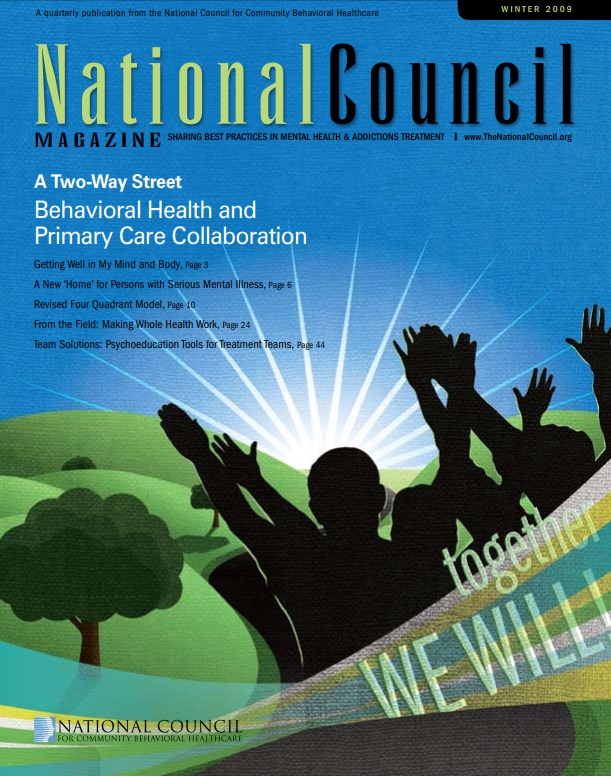
Launched in 2000, National Council Magazine kept our members and others in the field informed about key issues, emerging trends and critical developments.
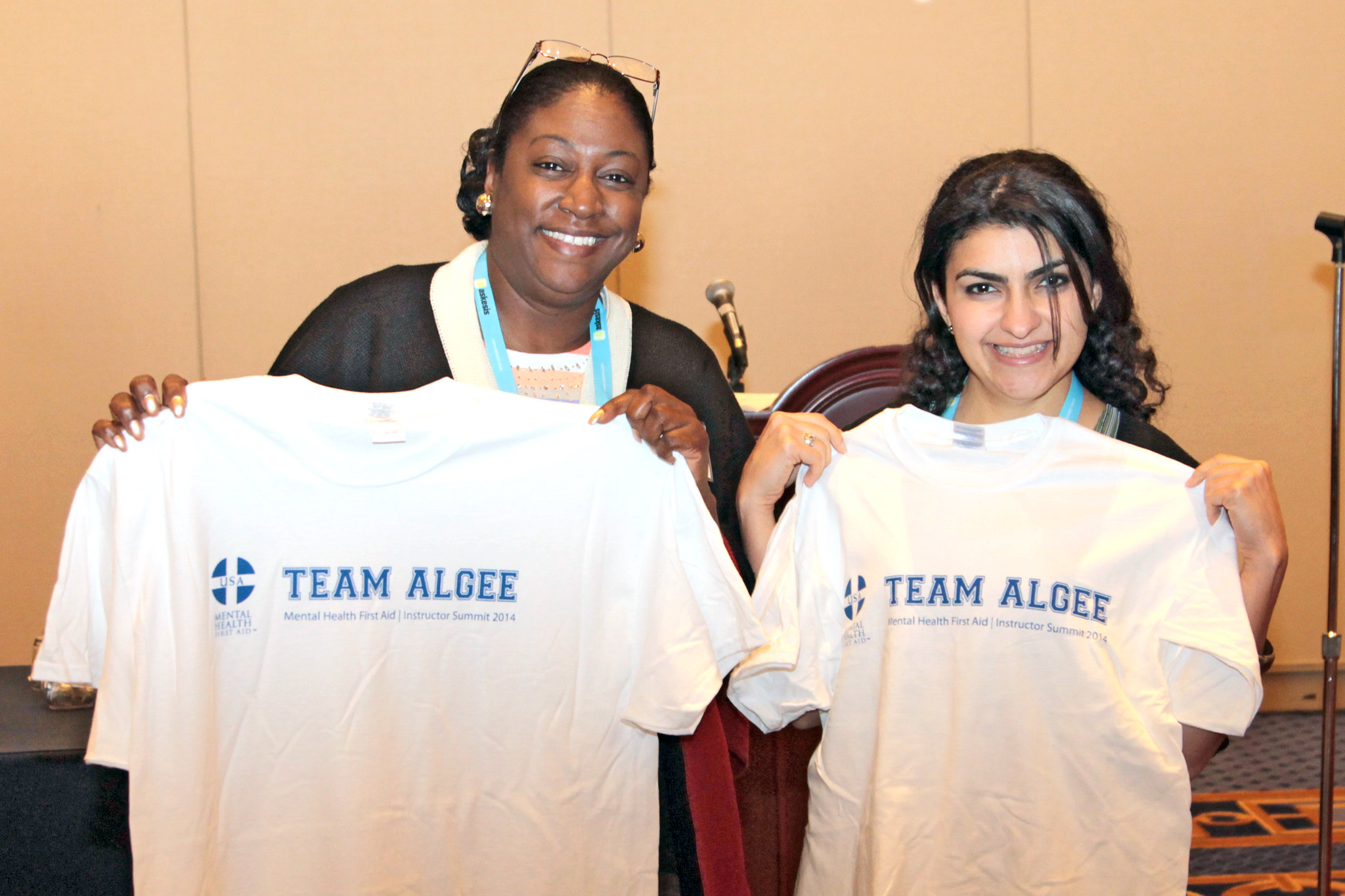
In 2007, we introduced Mental Health First Aid to the U.S., sparking a national movement to equip individuals with the skills and tools to support those in need.
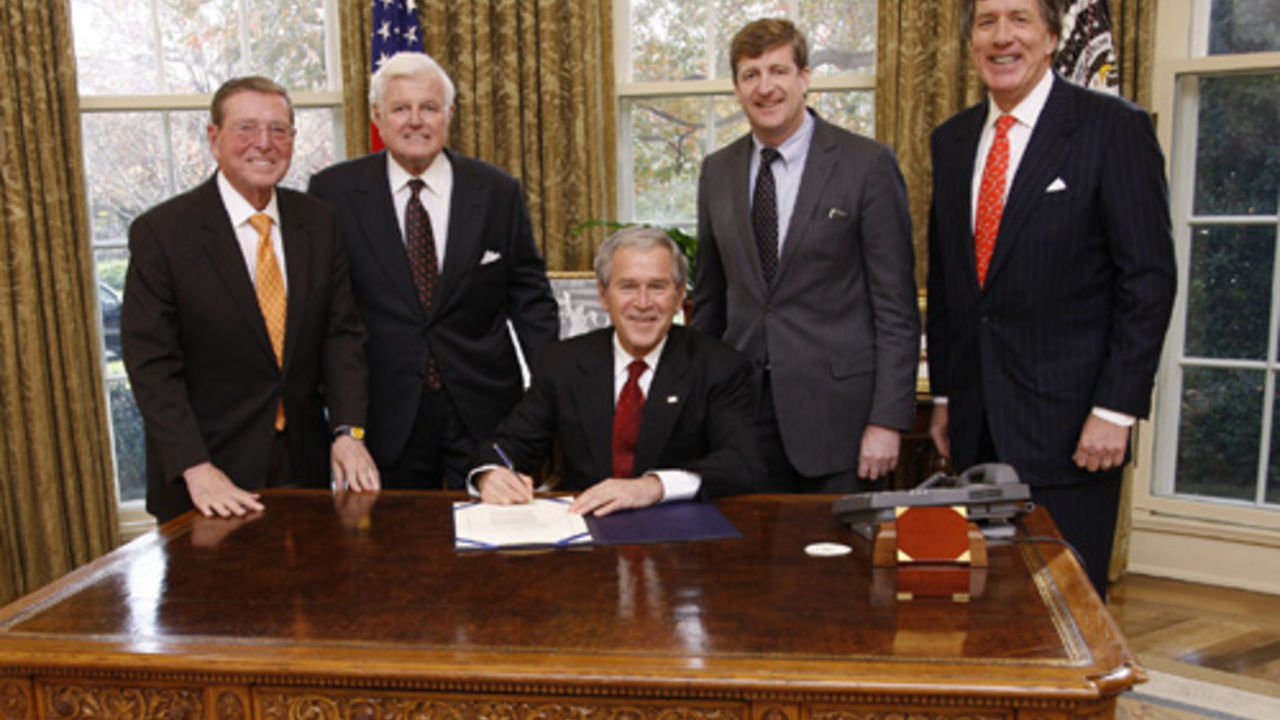
Through our advocacy, we played a pivotal role in securing the passage of legislation like MHPAEA, signed into law on October 3, 2008.



[Click above images for larger versions with captions.]
- 2000: We distribute the first edition of National Council Magazine, a quarterly publication offering our members insight into treatment news and trends.
- 2002: We help write an in-depth study on co-occurring disorders — mandated under the Children’s Health Act of 2000 — and deliver it to Congress.
- 2004: Membership in the organization reaches 1,000.
- 2005: We hold our first Hill Day, an annual advocacy event, in Washington, D.C.
- Our Policy Action Center is established to support state associations’ advocacy efforts and provide policy resources.
- We launch Project Helping Hands in the aftermath of Hurricane Katrina, delivering emergency aid to 40,000 people with behavioral health challenges.
- 2007: We introduce Mental Health First Aid (MHFA) to the U.S. in 10 locations, kicking off a national movement to increase mental health literacy.
- We conceptualize the Certified Community Behavioral Health Clinic (CCBHC) model, now the gold standard in treatment and care delivery.
- 2008: Our collaboration with other organizations on mental and physical health advocacy contributed to the passage of MHPAEA.
- We create JOBank (now Jobs Marketplace, powered by Triad) to support workforce development and recruitment in the behavioral health field.
- 2009: We develop the vision and advocate for the creation of the Primary and Behavioral Health Care Integration grant program, enhancing the coordination of services.
2010s: Increasing Access to Care Nationwide
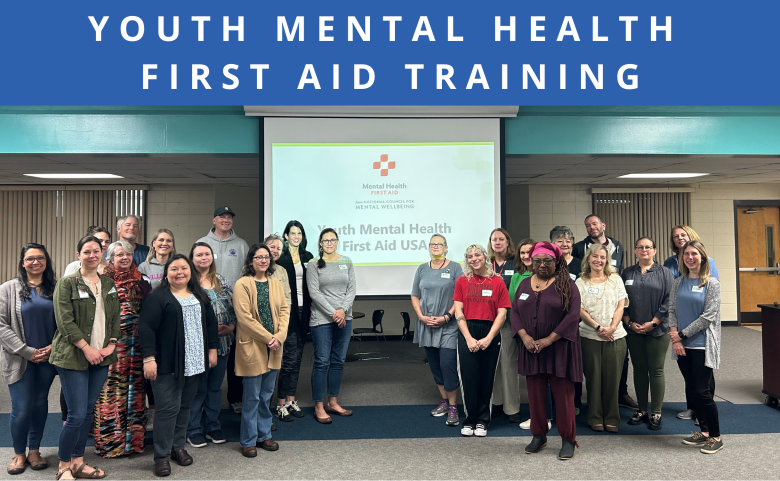
We launched Youth Mental Health First Aid in the U.S. to equip adults with the knowledge to support young people facing mental health challenges or crises.
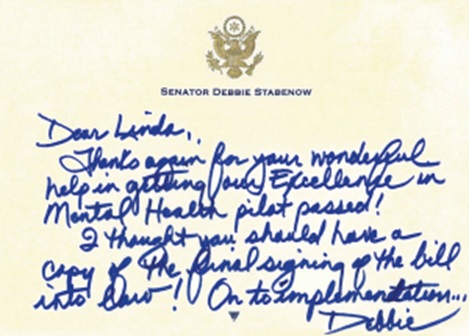
A note from Senator Debbie Stabenow expressing gratitude to the organization for its crucial role in securing the passage of the landmark Excellence in Mental Health Act.
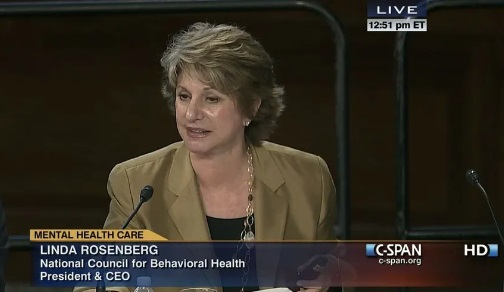
Linda Rosenberg, former President and CEO of the National Council, takes the floor on Capitol Hill to highlight the critical need for expanding access to mental health care.



[Click above images for larger versions with captions.]
- 2010: The Center of Excellence for Integrated Health Solutions is created to help providers meet the physical and mental health needs of the most vulnerable populations. The MHFA community grows to 6,500 people trained in the U.S.
- 2011: The National Council Medical Director Institute is established to leverage clinical expertise to support scalable, policy and systems change.
- 2012: We launch Youth MHFA in the U.S. to help adults support young people who may be experiencing mental health challenges or crises.
- 2013: The National Council for Community Behavioral Healthcare is renamed National Council for Behavioral Health to reflect the evolving focus of the organization and membership.
- We launch the National Behavioral Health Network for Tobacco and Cancer Control to help reduce tobacco use and cancer among people with behavioral health challenges.
- 2014: We advocate for the passage of the Excellence in Mental Health Act, resulting in the establishment of an eight-state CCBHC demonstration.
- We merge with the State Associations of Addiction Services, strengthening our substance use expertise and expanding our membership in the process.
- The MHFA community reaches 250,000 people trained in the U.S.
- 2016: Our work leads to the development of the Comprehensive Addiction and Recovery Act, the first federal law to fully recognize recovery from substance use.
- We support the 21st Century Cures Act’s provisions related to mental health and substance use, leading to the expansion of research and innovation.
- 2017: We successfully launch the CCBHC model with 66 clinics across eight demonstration states, a significant step toward increasing access to care across the country.
- The MHFA community reaches 1 million people trained in the U.S.
- 2018: We endorse the SUPPORT for Patients and Communities Act, which addresses the opioid crisis and improves access to treatment for substance use disorders.
- We launch MHFA at Work in the U.S. to help employees identify, understand and respond to mental health challenges in the workplace.
- 2019: We create National Council Interest Groups to help our members advance mental health and substance use services in historically underserved populations.
2020s: Investing in CCBHCs and the Workforce
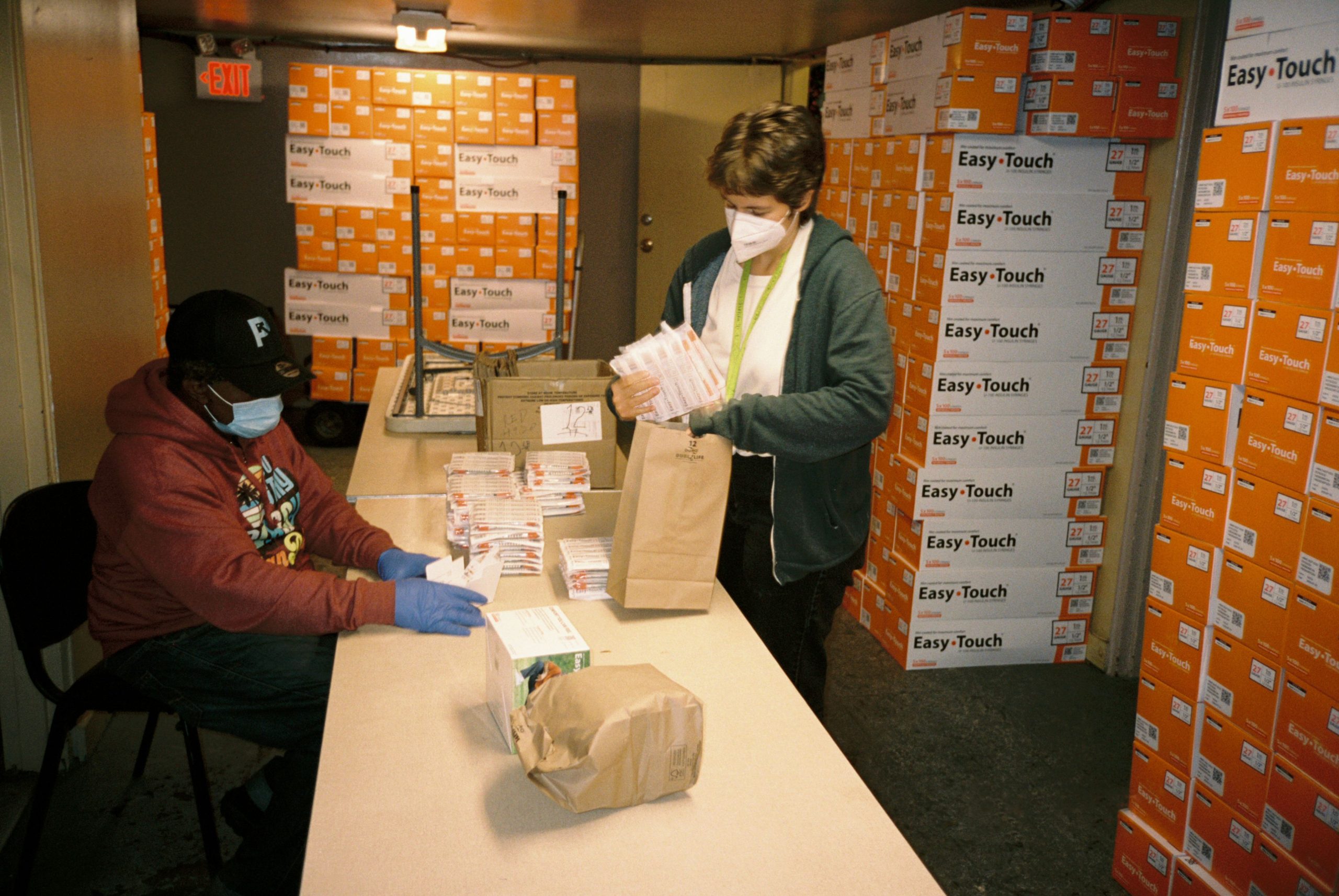
To support our members during the COVID-19 pandemic, we secured and distributed millions of face masks and raised $600,000 to provide critical assistance.
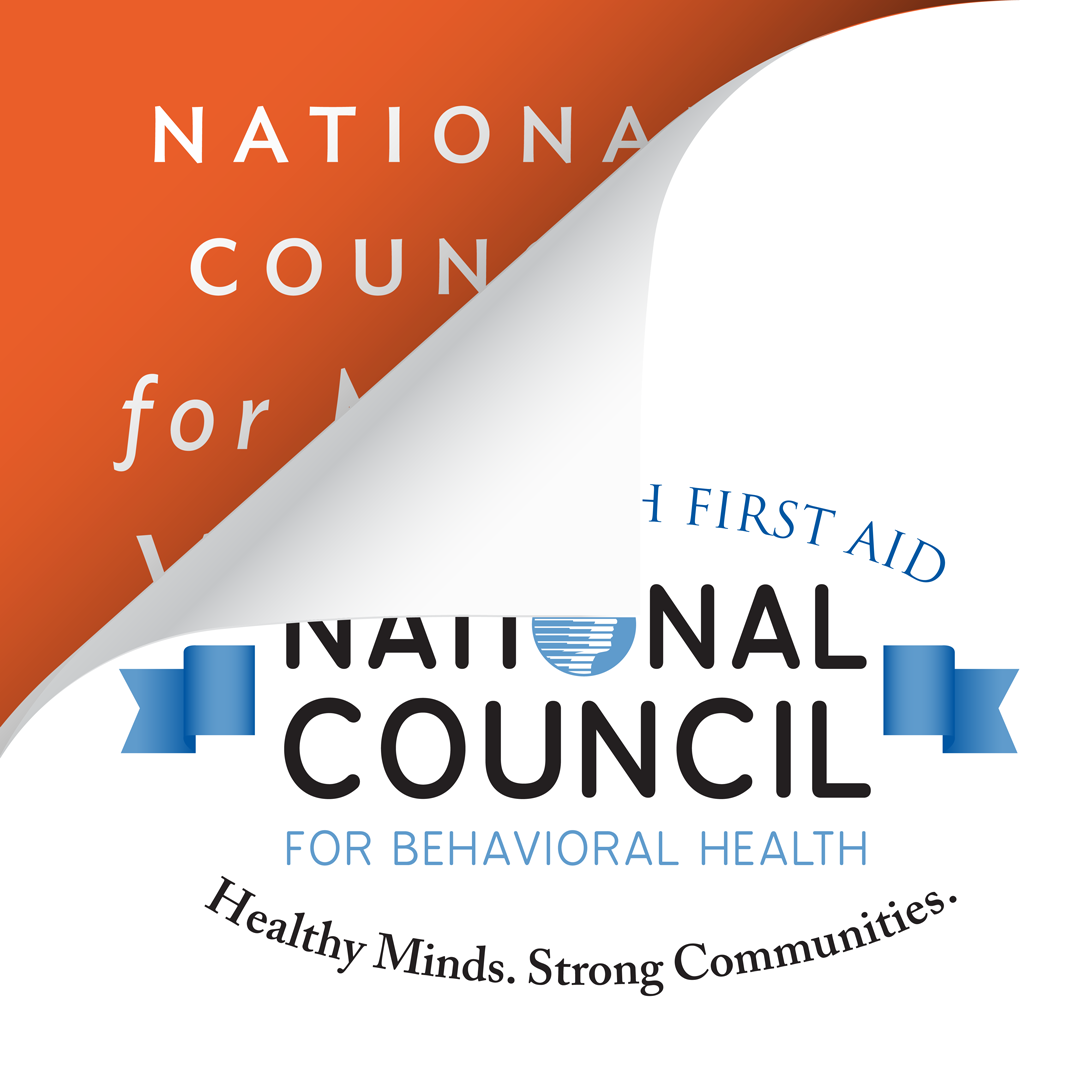
We rebranded the organization as the National Council for Mental Wellbeing, marking the beginning of an exciting new chapter in our storied history.
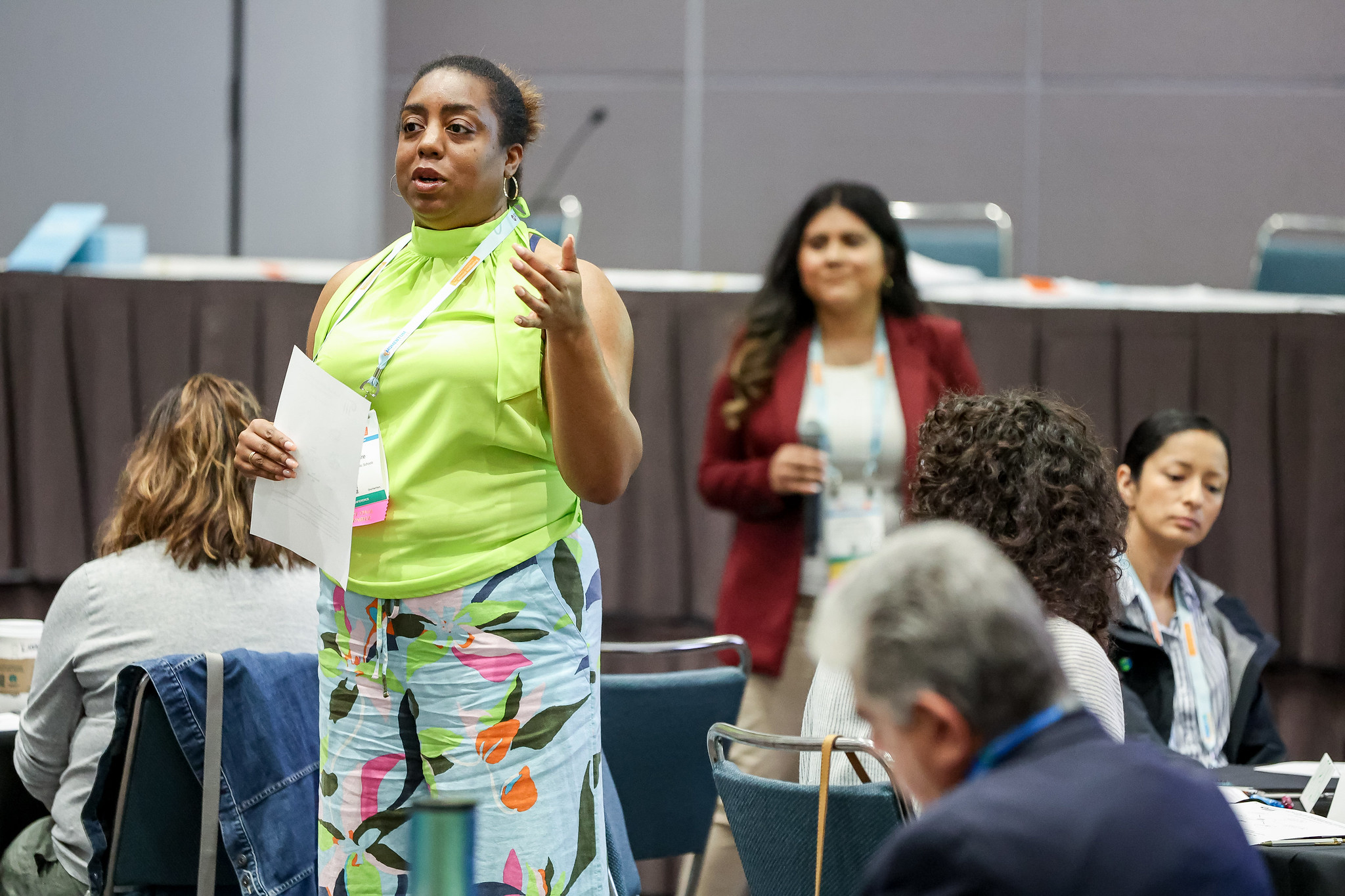
We hosted nearly 6,000 health care professionals in St. Louis for NatCon25, a new milestone and a testament to the quality of our curriculum.



[Click above images for larger versions with captions.]
- 2020: We respond to the COVID-19 pandemic by securing 2.3 million face masks for providers in need and more than $600,000 in donations through our relief fund.
- Our advocacy leads to an additional $850 million in SAMHSA CCBHC expansion grants through the CARES Act and COVID-19 relief package.
- The CCBHC Success Center is created to provide implementation support and advocacy for the CCBHC model nationwide.
- 2021: The National Council for Behavioral Health is renamed National Council for Mental Wellbeing to be more inclusive and change the narrative around how substance use is viewed.
- We advocate for the incorporation of behavioral health funding in the American Rescue Plan Act and ensure resources are utilized to support behavioral health services.
- The CCBHC-Expansion National Training and Technical Assistance Center is created to enhance the capacity and quality of care offered by CCBHCs.
- We launch teen MHFA in the U.S. to teach young people how to identify, understand and respond to signs of mental health challenges and crises in their peers.
- 2022: We support passage of the Bipartisan Safer Communities Act, which expands the CCBHC demonstration nationwide by adding 10 new states every two years.
- 2023: We implement provisions of the Consolidated Appropriations Act, which allows marriage and family therapists and mental health counselors to be reimbursed through Medicare.
- We launch the Center for Workforce Solutions to provide innovative and actionable strategies to address the behavioral health workforce crisis.
- 2024: We secure $385M in grant funding for CCBHCs, establish CCBHCs as a permanent state option in Medicaid and launch the CCBHC State Technical Assistance Center.
- We introduced our Five-Year Strategic Plan, which focuses on five key goals to enhance our effectiveness in serving our members and their communities.
- We create the High Performance Leadership Academy to help our members invest in their leadership and achieve organizational excellence.
- We host nearly 6,000 health care professionals at NatCon24, the biggest event in behavioral health care and our largest conference to date.
- The MHFA community surpasses 4 million people trained in the U.S.
Stay Informed of National Council News
In the past five decades, our organization and the field of behavioral health care have made significant strides — but there’s still more work to do. Follow along by subscribing to our newsletters!
